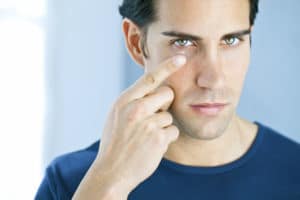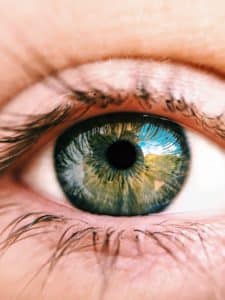Blepharitis is the chronic inflammation, or infection, of the eyelids and the eyelash follicles along the edge of the eyelid. Blepharitis, which is not contagious, affects patients of all ages.
Causes Of Blepharitis
There are several reasons for the occurrence of blepharitis, some of them are:
- Seborrheic dermatitis
- Acne
- Bacterial infection
- Allergic reaction
- Poor eyelid hygiene
- Rosacea
Symptoms Of Blepharitis
Symptoms of blepharitis include:
- Red or swollen eyes
- Red or swollen eyelids
- Frequent tearing of the eyes
- Eyelids that are crusty, flaky or scaly
- Sensitivity to light
- Blurry vision
- Burning sensation in the eyes

In more serious cases, sores can form when the crusting skin is removed, the eyelashes may fall out, the eyelids can become deformed, the infection can spread to the cornea, and patients often experience excessive tearing. Blepharitis can also cause styes, chalazions and problems with the tear film.
Diagnosis Of Blepharitis
The doctor will be able to diagnose blepharitis after a thorough examination of your eyes. Some of the items examined include:
- Examining the eye
- Evaluating the margins of the eye, the eyelashes and the oil glands
- Reviewing the medical history of the patient
- Testing eye pressure
Treatment Of Blepharitis
There is no cure for blepharitis. There is a tendency for the condition to recur making it difficult to treat. It can be controlled with proper hygiene of the eyelids. Treatment and preventative care for blepharitis involve a thorough but gentle cleaning of the eyelids, face and scalp. Warm compresses can be applied to loosen crust and gentle baby shampoo can help keep the eyelids clean. This treatment may be combined with antibiotics if a bacterial infection is determined to be the cause of the condition.

Book A Consult With Dr. Keverline!
Southside Eye Care proudly serves Chesapeake, Norfolk, Portsmouth, Suffolk and Virginia Beach Virginia as well as the surrounding areas. For more information on Blepharitis call us at 757-484-0101 today or fill out our contact form for more information. Dr. Michael R. Keverline and our talented team of doctors look forward to serving you!

